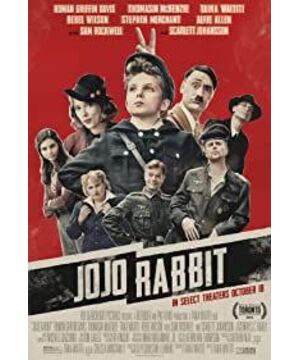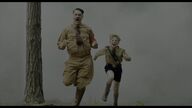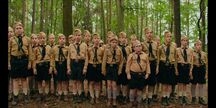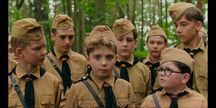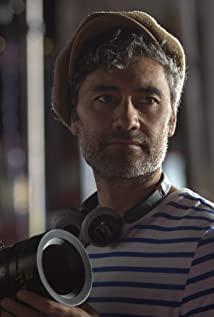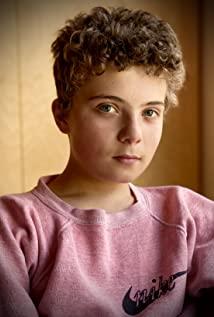The clue of the film is the story of jojo, a boy who is blindly fond of Nazis, growing up during World War II. He overcame prejudice, learned to understand, and understood love, while still retaining the gentleness in his heart. In a satirical way, the film depicts Hitler's moody and strong-mindedness in the image of JOJO's fantasy, criticizing him and the Gestapo for their indifference to life, the destruction of culture and the manipulation of ideas. Of course, the film is still the central idea of anti-war, which is concentrated in the praise of life, the search for love, and the insistence on freedom. From a child's point of view, the Nazi officers forced JOJO to kill the rabbit but JOJO chose to let it go. This is the intolerance of killing. From an adult's perspective, Elsa is hiding in the wall, and her movement against the wall seems to be a metaphor for her to live by hope for tomorrow. From the perspective of race, in Europe, thousands of Jews are still struggling to survive like Aisha. The Jewish nation has a kind of love and devotion to life. And JOJO's parents, who are Germans, have always fought against the Nazis, displaced and even lost their lives, in order to end the war and save the future of Germans and others. about love. JOJO's mother relied on her trust and affection for her father, insisted on taking care of JOJO alone, and at the same time carried out dangerous acts of resistance. At the same time, her love for her deceased daughter begets a kind of pity for Elsa. JOJO finally got rid of his fantasy Hitler out of love for Elsa. Life is like that tiger, it is love that makes you look at it and gain courage. I feel that the translation of the title is not very good. After all, this is not just a film from the perspective of a child, and it is not a so-called fantasy. The world of JOJO is constantly changing. In this process, we should focus on depicting the change of JOJO's character from cowardice to bravery, his re-understanding and cognition of war and human nature, and the difference in his attitude towards life choices. But I feel that this film is still too peaceful in shaping JOJO's spiritual world. Although there is a transition between cold and warm tones, maybe this jump is too fast, and JOJO seems to be just one person from beginning to end. I thought that when I went through the ups and downs of life, especially as a German who went through World War II, it should reflect the ignorant struggles and contradictions of the characters. After great changes, JOJO still seems to be the innocent boy, and the handling here is dull.
View more about Jojo Rabbit reviews


